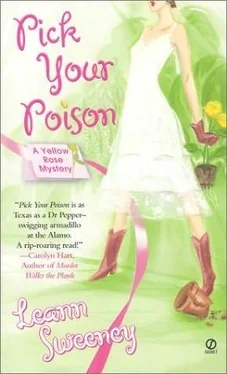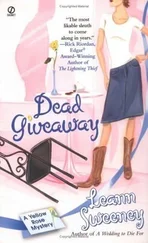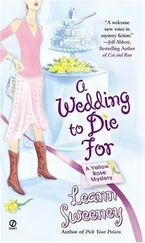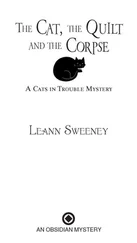Terry, wearing a soft green shirt and lightweight sports jacket, had a gleam in his eye. A good sign. After our meeting with Hamilton, he had seemed almost as interested in this case as I was, so maybe he’d caught the detecting bug, too.
He opened a manila folder and said, “I haven’t located Feldman, so no address. But an old desk sergeant named Grant, who started out as a bailiff at the Galveston County Courthouse years ago, remembers a lawyer named Feldman who made regular appearances in family court for his adoption business.”
“You’re kidding. This is fantastic, Terry.”
“Grant says Feldman was a shady baby broker linked to hints of a judicial scandal. A judge named Hayes left the bench after being tied to Feldman and some questionable adoptions.” Terry leaned back and smiled.
The rush of pleasure I felt at finally getting a solid lead surprised me with its intensity. “We could search back,” I said, “and if Feldman has a record, maybe Jeff Kline will help me locate him.”
“Hold on. I said there were hints of a scandal. When Hayes left the bench, the investigation ended. Apparently lots of wheeling and dealing went on behind closed doors. She resigned and everything quieted down. Feldman wasn’t seen around the courthouse much after she left.”
“Did Grant tell you anything else?”
“He remembers the judge better than he remembers Feldman. Quite a few of the ‘good ol’ boys,’ Grant included, said they knew she played dirty. Their take was that if she wanted to make it in a man’s world, she had to cheat.”
“How typically Texan of the boys. Is Judge Hayes still around?”
“I don’t know, but her son is a big-time real estate salesman in Galveston. Here’s his number.” He handed me a piece of paper. “If Mr. Hayes isn’t happy that you’re resurrecting unpleasant rumors about his mother, do me a favor and don’t tell him who sent you.”
Several hours later I was cruising toward Galveston for the umpteenth time in a week, excited at the prospect of following this lead. David Hayes, the judge’s son, had been more than cooperative. He gave me Eugenia Hayes’s address with his blessing, as well as directions so I could visit her. I didn’t mention her past indiscretions and he didn’t either. I simply told him I was a reporter writing a story about pioneering women in the judicial field. If he knew anything questionable about her past, he made no mention. But then, she probably didn’t share the bedtime story of how she nearly got kicked off the bench. David Hayes might not have a clue about her questionable past.
The fact she now resided in a nursing home might present a few problems. Not to mention her Alzheimer’s disease. But I wasn’t discouraged. In fact, I hummed the Beatles’ “Here Comes the Sun” as I followed the brick-lined path leading to the front door of Faircrest Haven.
A kind-looking woman, with tight salt-and-pepper curls and wearing a name tag with Lorna printed in giant letters, greeted me from behind a U-shaped desk several feet beyond the entrance of the two-story building. She abandoned her People magazine to offer a friendly smile.
“I’m here to visit Judge Hayes,” I said.
Her face clouded as she flipped through a Rolodex of laminated plastic cards.
“Judge Hayes?” questioned the woman. “Is he in-patient care or a day resident?”
“I think he is a she , if that helps any,” I said, peering over the desk and wondering if they’d ever considered indexing the patients on a computer.
“Oh, my goodness.” Her eyes widened and she shook her head. “You must have the wrong facility. They do those surgeries down at the University Hospital. We only have old people here, not any of those sex-change folks.” She pointed back out the front door over my shoulder. “To get over there, you go back to Seawall Boulevard and turn—”
“No, you misunderstood,” I said with laugh. “Judge Eugenia Hayes,” I clarified. Or so I thought.
“You’re telling me our Eugenia used to be a man? Doesn’t that pop the wax out of your ears? You know, she doesn’t make sense half the time, so that explains her problems. It’s hard enough making it in this world, and then you go switching your body parts and—”
“I’m really in a rush,” I interrupted. “Could you tell me her room number?” I realized I wouldn’t straighten this out in Lorna’s mind, now or in the future.
“She’s in two-thirty-one. Take the elevator to the second floor and turn left. You know, I always thought Eugenia was a weird name, but now I understand. She used to be Eugene, didn’t she?” She smiled and gave me a conspiratorial wink.
There was a good reason for Lorna to use laminated cards. Trusting her with technology would have been far too risky.
When I exited the elevator on the second floor, an overpowering blend of disinfectant and room deodorizer greeted me. I followed the signs and was soon tapping tentatively on the door of two-thirty-one, not sure what I’d find. I’d never visited a nursing home before.
“Come in,” commanded a woman from within.
I opened the door and paused, surprised at the size of the voice coming from the tiny person propped up in bed.
“Shut the door!” boomed the gray-headed lady, her frame nearly lost in the swath of white sheets and pillows surrounding her. “It smells like a goddamn nursing home in that hallway!”
I quickly complied and moved into the spacious room. I’d expected IVs and oxygen tanks at the very least, but instead, the place resembled a jungle. A huge corn plant stood in one corner, leaning toward the light of the picture window. Potted plants, bursting with blossoms of violet and pink, spread out to line the wall with bright green foliage. Framed by the window, the seething Gulf of Mexico angrily foreshadowed the approaching storm.
“What do you want?” she demanded. “Because if you’re selling insurance, you can turn around and march right out. Odds are I’ll be dead soon, and no living soul will profit from that event. Not if I can help it.” She opened her arms wide. “Besides, this glorified tomb has taken every penny.” She turned and started fumbling around for something on the bedside table.
“Can I help you?” I asked, hurrying over to her.
But she located her glasses before I could reach her side, stretching the wires behind her ears, then scrutinizing me from head to toe. “No. You’re no salesperson. You don’t have their sneaky eyes. God knows I can pick out those idiots at a hundred yards.”
“Your son told me you lived here,” I said, sliding a dieffenbachia away and pulling a chair up alongside the bed.
“My son?” Confusion muddied her already hazy brown eyes.
“He told me you have a problem remembering things sometimes.” Actually, he told me she had trouble most of the time, but did better with the distant past than with recent events. My hope lay there. “Could I ask you a few questions?”
“I run a tight courtroom, young lady, so don’t think because you’re fresh out of law school you can get one past me. I’ve seen every trick in the book.” She folded her arms across her chest and stared at me expectantly. “Go ahead. Ask away.”
“I-I’m not a lawyer, but—”
“I told you not to argue with me,” she snapped.
“Yes, ma’am,” I said. Even through her disorientation, she exuded an authority not unlike that of the second-grade teacher who had sent me to the principal for chewing gum. “I wanted to ask you about another lawyer, Judge.”
“You came to the right place, because I’ve known a bunch of them. Professional liars, for the most part.” She laughed, turning her face to the ceiling and guffawing loudly before the outburst mutated into a fit of coughing.
Читать дальше












